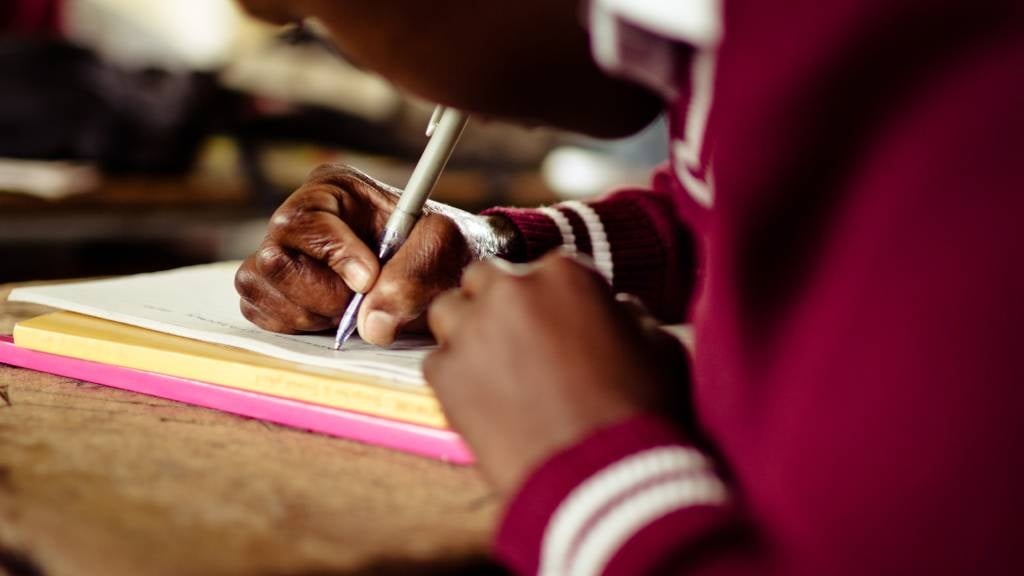
Teachers find themselves having to hold multiple identities in their practice in a way that degrades their professional identities, and this often shows in levels of apathy. Andisiwe Hlungwane writes that a pipeline of support is needed.
It’s no secret that we have poor education outcomes, with four out of five Grade 4 learners unable to read for meaning in any language of this country. Teachers are often blamed; their attitudes, outdated and inefficient pedagogical practices, and poor content knowledge are considered key contributors to poor education outcomes in lower-quintile schools.
While these factors do contribute to poor learning and teaching, they are not the complete picture.
The factors that contribute are not always seen or acknowledged by the education system and society. Think of an iceberg at sea; what is visible above the water is just the tip of a massive mound of solid ice that has broken free of a glacier.
Crowded classes, hungry pupils
Similarly, in many poor communities, there's a lot more beneath the surface than meets the eye. Teachers lead crowded classes in schools where learners arrive hungry, travel long distances by foot or taxi in mended hand-me-downs while carrying the weight of their backpacks and poverty's burdens.
Against this backdrop, many teachers feel demoralised and unsupported in their profession – and it shows in levels of apathy. They find themselves having to hold multiple identities in their practice in a way that degrades their professional identities.
So, when you ask a teacher in South Africa about their role, the response is often:
Intuitively, we understand why this is true for so many educators who find themselves in classrooms that mirror our unequal society.
As a consequence, many end up pouring from empty cups with little room to do what they are meant to do – teach well. This regularly leads to burnout, and it manifests in the 'brain drain' of some of our best and skilled teachers.
Research conducted by the Human Sciences Research Council (HSRC) shows that South Africa is struggling to retain its teachers, with lack of support for new teachers cited as the main contributor. This points to a lack of professional support and mentoring in the first five years of a young teacher's career, which international research has shown to be a critical juncture that heavily determines whether they stay the course or leave the profession.
Fellowship programme
At the centre of the work that we do as the Teachers Change Agent Network (Teachers CAN) is our fellowship programme – made up of three one-week immersions for educators that are already pushing for change in their school communities. Schools are more than just places of learning in poorer communities – they are nutrition hubs and spaces where learners should feel safe to express themselves, ask questions, ask for help and access social or therapeutic services.
READ | OPINION: Zelda Barends - The reality of the classroom is often a stumbling block
As we settle into the third year of the fellowship, I've heard numerous stories from young teachers who step into the role of social mother or father, like a teacher who mediated the difficult process of a young child reporting sexual abuse. The teachers we work with take a lot of pride in being able to provide this sort of care to their learners; we have examples of teachers going to the hospital with learners, standing in court with learners and even buying sanitary pads for learners.
While these teachers pride themselves in playing these roles, it often goes unseen and unacknowledged by others and the sector. In our very first engagement with our fellows, we explored the notion of teachers as a 'social identity'. The first thing we often need to unpack and dispel in our engagements with fellows is that teachers can – and should – be everything to everyone at the expense of their core work. We recognise that they are navigating complex and challenging issues that will wear them down eventually.
Education eco-system
Imagine what these young teachers, who go out of their way for the communities they serve, could achieve if they could be just teachers – connecting with learners in a way that centres pedagogy, content and skills.
Many of our country's older teachers are nearing retirement age; approximately 48% are expected to leave the public schooling system by 2032. This will leave a massive deficit unless we equip and support our young and enthusiastic cohort of new teachers to navigate the complexities of an unequal education system.
Teachers CAN believe that a coordinated collaborative effort to ensure that teachers are able to teach well is needed from the education eco-system. In a recent study, we found that only 20% of respondents felt that they were connected to a broader network of social change.
READ | OPINION: Yanga Malotana - How South Africa can fix its education system
We need to build a pipeline of support for teachers to tap into, so that they can focus on ensuring that every child in South Africa has access to quality education. As a sector, we need to rally behind the profession in a way that both communicates and shows the value of teaching.
We want to get to a point where being a teacher is not a social burden but valued as a social responsibility to change the trajectories of our poorest children.
- Andisiwe Hlungwane is the programme lead of Teachers CAN and Parent Power, two incubated project of the DG Murray Trust (DGMT) that aim to elevate teachers and parents as powerful actors in the education sector.
Follow Teachers CAN on Twitter, Facebook and Instagram.
Want to discuss hotly debated topics with someone from across the world? Sign up for our global dialogue programme and get matched for a conversation
*Want to respond to the columnist? Send your letter or article to opinions@news24.com with your name and town or province. You are welcome to also send a profile picture. We encourage a diversity of voices and views in our readers' submissions and reserve the right not to publish any and all submissions received.
Disclaimer: News24 encourages freedom of speech and the expression of diverse views. The views of columnists published on News24 are therefore their own and do not necessarily represent the views of News24.




 Publications
Publications
 Partners
Partners























